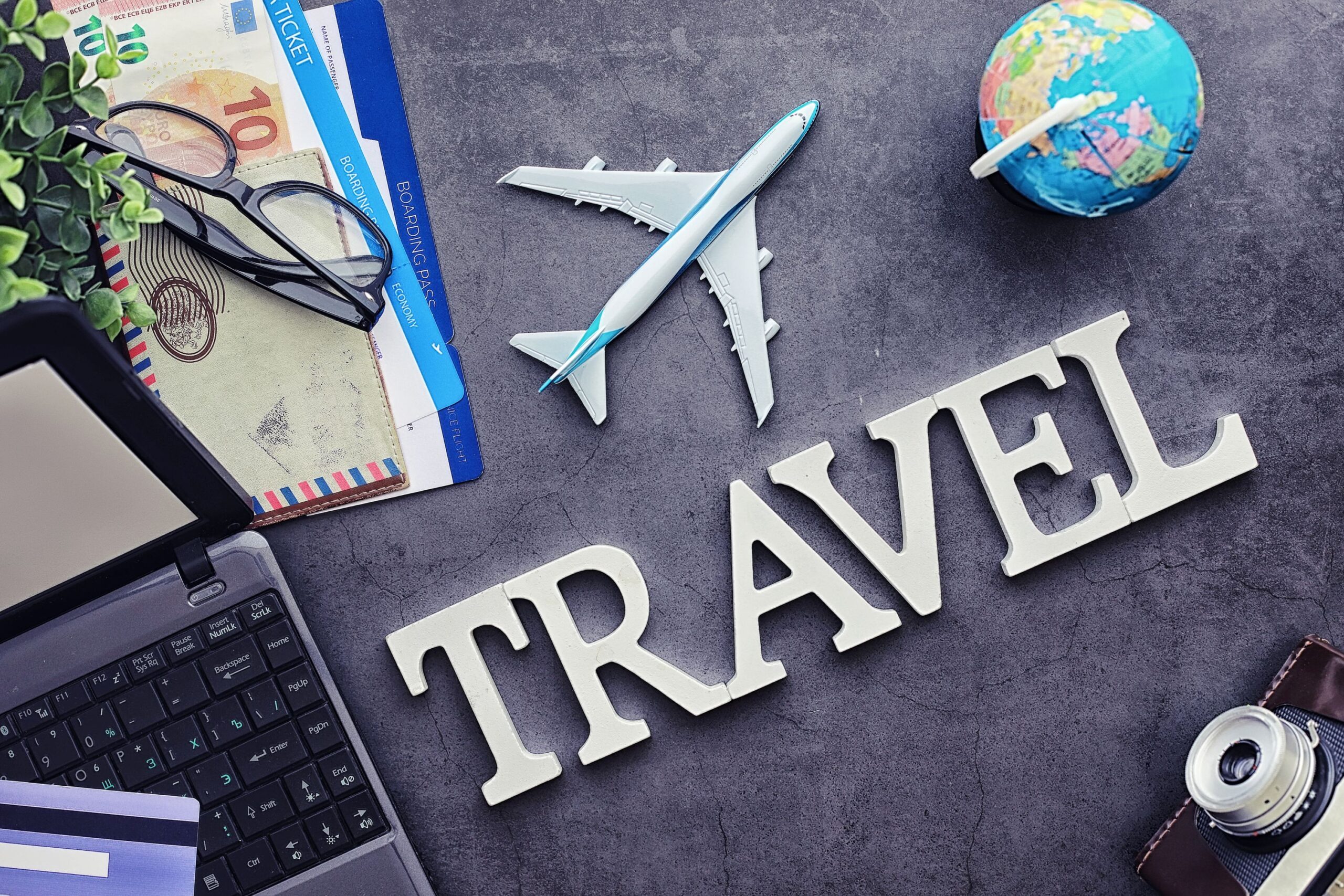A ticket booking fee is an extra charge added during the final purchase of a flight ticket, usually right before payment. It’s not part of the base fare you first see when searching for flights, so the total price often increases at checkout.
This fee covers the cost of processing your reservation. It might go to the airline or a third-party platform (like a travel website or app), depending on where and how you book. Some airlines use it to maintain their booking systems, while others apply it as a service charge for online transactions, customer support access, or payment handling.
It’s one of the most common extra costs when booking flights online. While it may seem small, ranging from $10 to $50 per person, it can quickly add up, especially for families or multi-leg trips.
So if you’re wondering why that cheap ticket suddenly got more expensive, the ticket booking fee is often the reason.
Why Do Airlines and Platforms Add a Booking Fee?
Airlines and third-party platforms often charge a ticket booking fee to cover the cost of handling your reservation. This is how they compensate for low headline fares, especially in a competitive market.
Some airlines charge it to maintain their websites and payment processing systems. Others add it when you book through a partner or third-party site. In that case, the fee often goes to the travel agency or platform you used.
This fee can be fixed or based on a percentage of your total fare. For example, a low-cost airline might add a $15 flat fee per passenger. You might see fees closer to $30–$50 on some international bookings.
When you use platforms like online travel agencies (OTAs), they may charge their booking fee too, even if the airline doesn’t. It’s a business model: they help you compare flights, but they earn from your booking in return.
Are Ticket Booking Fees the Same Everywhere?
Not exactly. The fee might be lower or nonexistent if you book directly on an airline’s official website. But if you use a third-party website, especially one that offers discounts or bundles, you’re more likely to see a separate ticket booking fee.
Different regions and countries also treat fees differently. In some parts of Europe, regulations require all mandatory costs to be shown upfront. That means no surprise fees at checkout. The rules are less strict in other places, and fees may appear late.
If you’re booking a round-trip flight with multiple airlines or using a site aggregating low-cost carriers, you might pay various booking fees.
What Does a Ticket Booking Fee Usually Cover?
When you pay this fee, what are you getting? You’re paying for the system that processes your payment, handles your seat selection, and stores your ticket info.
Sometimes, it also includes customer service access, like the ability to make changes, request special services, or rebook in case of issues. But this varies greatly depending on where you’re booking.
Some platforms are upfront about what’s included. Others call it a “service fee” or a “processing fee” without much detail.
Can You Avoid a Ticket Booking Fee?
Sometimes, yes. Book directly through the airline’s website to avoid the extra charge. Most full-service carriers don’t charge a booking fee.
Another option is to use loyalty points or frequent flyer miles. Many airline programs waive booking fees if you redeem miles or book through your member profile.
If you book with a credit card that offers travel perks, some of the fees may be refunded, or you might get travel credits that help offset them.
And here’s a small but bright tip: some booking platforms add fees by default, but allow you to uncheck optional services during checkout. Always read the fine print before you click “Confirm.”
When Booking Fees Make Sense
You might not love paying extra, but sometimes the ticket booking fee comes with added value. If a travel platform offers 24/7 support, automatic rebooking, or flexible cancellation policies, that might be worth the small extra cost.
Especially when booking flights with multiple carriers or in destinations where delays are common, paying a few dollars more for smoother management can be worth it.
In those cases, a booking fee isn’t just a charge—it’s part of your peace of mind.
The Difference Between Ticket Booking Fees and Other Charges
Don’t confuse the booking fee with other extras like baggage fees, seat selection, or taxes. Those are separate and usually depend on the airline and your chosen fare class.
The ticket booking fee is linked to the transaction, not the flight’s features.
Some platforms bundle the fee with taxes or disguise it as an admin fee. Expanding the pricing breakdown at the checkout screen is always a good idea.
You’ll have more control over what you’re paying for and know what you’re getting in return.
How Airlines Use Booking Fees to Keep Base Fares Low
Airlines advertise rock-bottom prices to grab your attention. But those appealing fares often don’t reflect the full cost of your trip. Ticket booking fees are part of the final price jumps at checkout.
When you see a $39 fare, that usually covers just the seat, without bags, food, or sometimes even a printed boarding pass, to stay competitive, airlines keep the base fare low and charge for everything else, including the booking itself.
This is called unbundled pricing. It helps airlines earn more from each passenger while appearing at the top of fare comparison sites. Since most travelers only look at the initial price, the add-ons come as a surprise later.
If you understand this strategy, you can plan better. Look at the final total, not just the starting price. That’s what tells you the real cost of your flight.
Booking Flights Online? Here’s What You Can Do
You’ll always want the best deal, but the lowest price doesn’t always mean the best value. To avoid overpaying, start by checking how the platform presents its prices. Some platforms are upfront, while others hide fees until the last step.
Here’s what you can do:
When you compare flights, use platforms that allow you to show “all-in pricing.” This setting includes fees and taxes from the start, so you don’t get caught off guard.
Also, try searching directly on the airline’s website. Not only do you get the full price early on, but many carriers also waive booking fees when you book with them directly.
If comparing deals between sites, clear your cookies or use private browsing. Some platforms track your activity and may increase prices or show different booking fees based on your behavior.
And before you pay, continually expand the price breakdown. Look for anything labeled “service fee,” “processing fee,” or “booking charge.” If it’s there, decide if the platform offers enough convenience to justify the added cost.
When Is a Ticket Booking Fee Worth Paying?
Not all ticket booking fees are just extra charges. Some come with tangible benefits—like priority customer support, easier refund processing, or price alerts for future deals. That’s especially helpful when booking multi-leg or international flights.
Let’s say you’re flying with two carriers on a single itinerary. A good booking platform might help rebook you, even across various airlines, if something goes wrong, like a missed connection. In that case, the fee you paid upfront could save you a lot of hassle later.
Also, if you’re a frequent traveler, it may be worth using services that charge a booking fee but offer loyalty rewards, airport lounge discounts, or cancellation protection. For someone who flies regularly, the benefits often outweigh the cost.
Of course, this depends on what matters to you. If you’re traveling light and short-haul, it might be better to skip the platform with the added fee and book directly with the airline.
What to Watch Out for in Ticket Booking Fees
Some fees are easy to spot. Others are buried deep in the booking flow. Here’s where you’ll usually find them:
- On the final confirmation page, right before you enter payment details
- In the fine print or pop-up windows next to pricing breakdowns
- Under vague terms like “service charge” or “admin fee”
And here’s the trick: some platforms will auto-include services like SMS alerts or seat upgrades during checkout. These may look like part of the booking fee, but you can usually uncheck them.
Another thing to note: fees aren’t always per booking. In many cases, they’re per passenger. So if you’re booking for a family or a group, those numbers can add up quickly.
If you’re unsure about a charge, pause. Check the airline’s site and compare. Most of the time, you’ll see a more transparent fee structure and fewer surprises.
Will Booking Fees Change in the Future?
The short answer is: yes. As airlines and travel platforms become more transparent—or are required to by law—you might see fewer hidden fees.
Regulators have already intervened in some regions. In the EU, for example, rules require that all mandatory fees—including booking charges—be included in the first price shown to customers.
Other countries are considering similar regulations, especially as consumers demand more transparency. Travel platforms that want to keep your trust are already adjusting how they present costs.
But until clear rules are standard everywhere, it’s still up to you to check carefully. Knowing what a ticket booking fee covers and when it appears is your best defense against overpaying.
How to Avoid or Offset a Ticket Booking Fee
If you book flights often, you’ve probably seen how small fees can stack up. But there’s a way to soften the blow—use travel credit cards or loyalty memberships. Many travelers overlook how powerful these tools are when cutting extra costs.
Let’s start with credit cards. Some travel cards offer statement credits that automatically refund specific fees, including ticket booking fees, checked bag charges, or seat upgrades. These benefits usually apply when you book directly through airlines, but a few premium cards extend the perks to third-party travel platforms.
If your card includes travel insurance, that alone might justify a booking fee if it grants you access to priority support or flexible changes. For frequent flyers, this adds real value.
Then there are airline memberships and elite status tiers. If you’re enrolled in a frequent flyer program, you may be able to avoid booking fees entirely, or at least reduce them. Some airlines even waive fees for booking award flights or for using points.
When choosing how to book, it’s worth checking if your loyalty program or credit card offers fee waivers. That extra step can make a difference.
Booking Flights with Budget Airlines: Fee Traps to Know
If you tend to fly on budget carriers, ticket booking fees are often part of the deal. These airlines profit by charging low fares upfront and recovering revenue through extras. So if you see a $10 flight to another city, expect fees for just about everything, including booking.
Some ultra-low-cost airlines charge booking fees based on the payment method. For example, if you pay with a credit card instead of a specific prepaid debit card, they’ll charge extra. That’s their way of offsetting transaction costs without raising base fares.
Others include fees only on specific sales channels. You might pay more if you book through an app than the airline’s desktop site. Oddly enough, some charge a higher fee at the airport counter to encourage more online bookings.
To avoid surprises, review the airline’s fee table before confirming anything. It’s usually on their website, hidden under sections like “Fare conditions” or “Payment policy.”
If you’re flying with multiple budget airlines on one trip, remember that each one may charge its own booking fee. Planning helps you calculate the full cost more accurately.
Can Airlines Legally Add Ticket Booking Fees?
In most countries, yes—but there are guidelines. Airlines and booking platforms are generally required to disclose all fees clearly. The issue is that some don’t display them until the last step, which makes comparison shopping tricky.
The U.S. Department of Transportation has rules about fare transparency, but many of them focus on taxes and baggage fees, not always on booking charges. In Europe, laws are stricter. From the start, airlines must show the full fare—including mandatory fees.
If you ever feel misled by a ticket booking fee, you can report the platform or airline to local consumer protection authorities. Depending on your payment method, you may also get a refund.
That said, most fees are legal, as long as they’re disclosed. The best approach is to stay informed and know what to look for before clicking “Buy.”
Airline Website vs Booking Platform: Which Has Lower Fees?
This depends on how you like to book. If you value convenience and want to compare multiple airlines at once, platforms like online travel agencies (OTAs) are helpful. But you’ll usually pay a bit more due to booking fees.
Direct booking with the airline tends to be cleaner. You see the full fare, can apply flight promo codes, and often avoid additional charges. Some airlines even offer exclusive deals if you book directly through their site or mobile app.
Here’s another thing: if something goes wrong with your flight, it’s easier to resolve the issue directly with the airline. When you book through a third party, you often need to go through their customer service first, especially if changes or refunds are involved.
So, if avoiding ticket booking fees is your priority, book direct. If you need flight tickets with flexible dates and want to compare different options in one place, OTAs can be worth the small fee—factor it into your total.
Smart Booking Tips to Avoid Extra Charges
Here’s how to avoid unnecessary booking fees or at least keep them low:
- Book directly through the airline’s website whenever possible.
- Use travel credit cards that refund or cover fees.
- Join frequent flyer programs and check if they waive fees for members.
- Compare total fares, not just base prices, before booking.
- Always uncheck optional add-ons that sneak in extra charges.
- Double-check payment method fees on low-cost airlines.
Being mindful of these details doesn’t take long, but it can save you money and stress whenever you book a flight.
FAQs
What is the average ticket booking fee?
Depending on the airline and platform, most booking fees range between $10 and $50.
Why do some platforms charge higher booking fees?
They may offer extra services, flexible ticketing, or include higher operational costs.
Can I get a refund for the booking fee?
Usually, no, unless the airline cancels the flight or you booked with a refundable fare and the fee is included.
Is it cheaper to book tickets in person to avoid fees?
Rarely. Some airlines charge even more for in-person bookings to encourage online sales.
Are booking fees included in promo fares?
Not always. Promo fares display base prices only, and fees are added at checkout.




